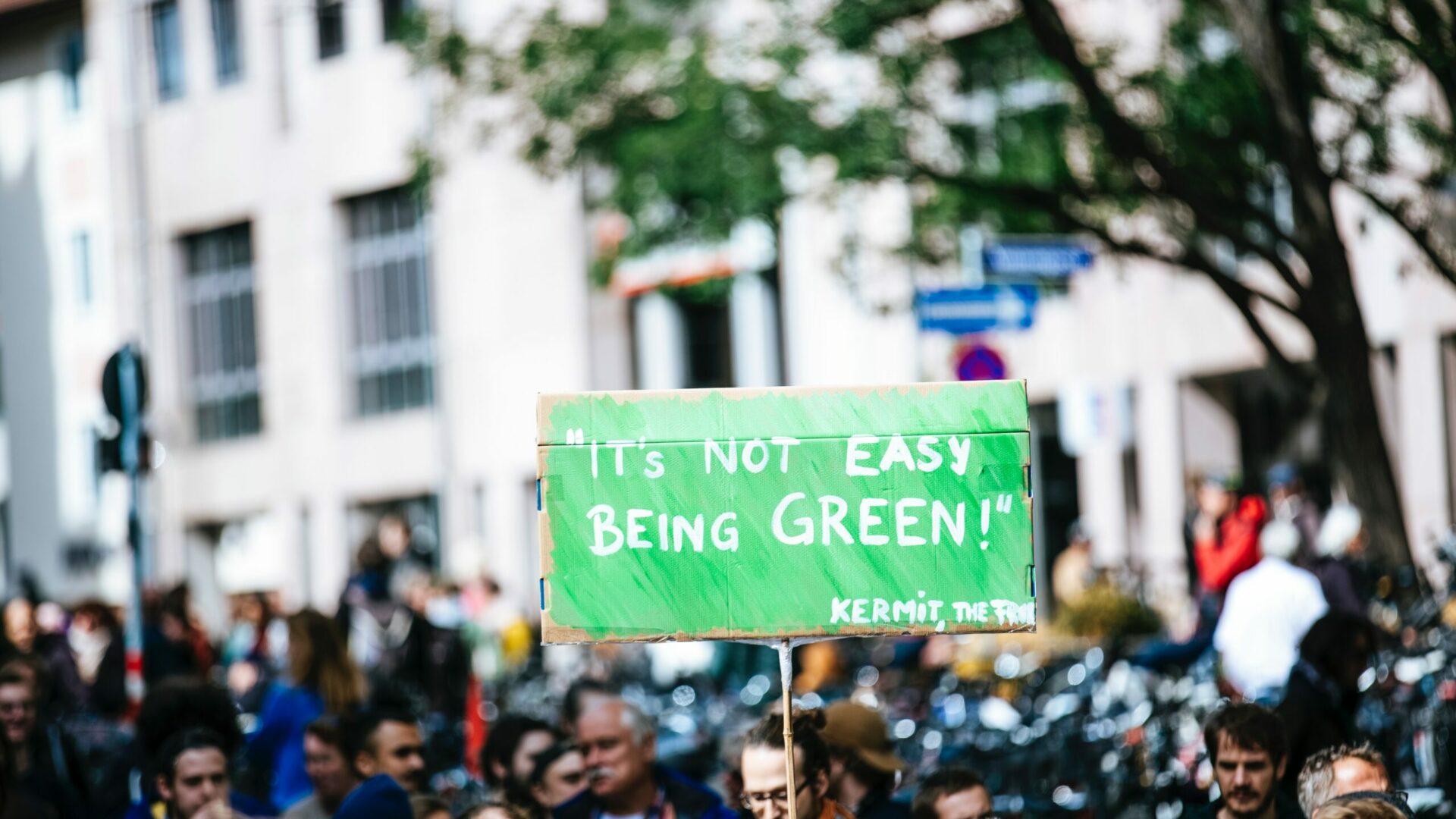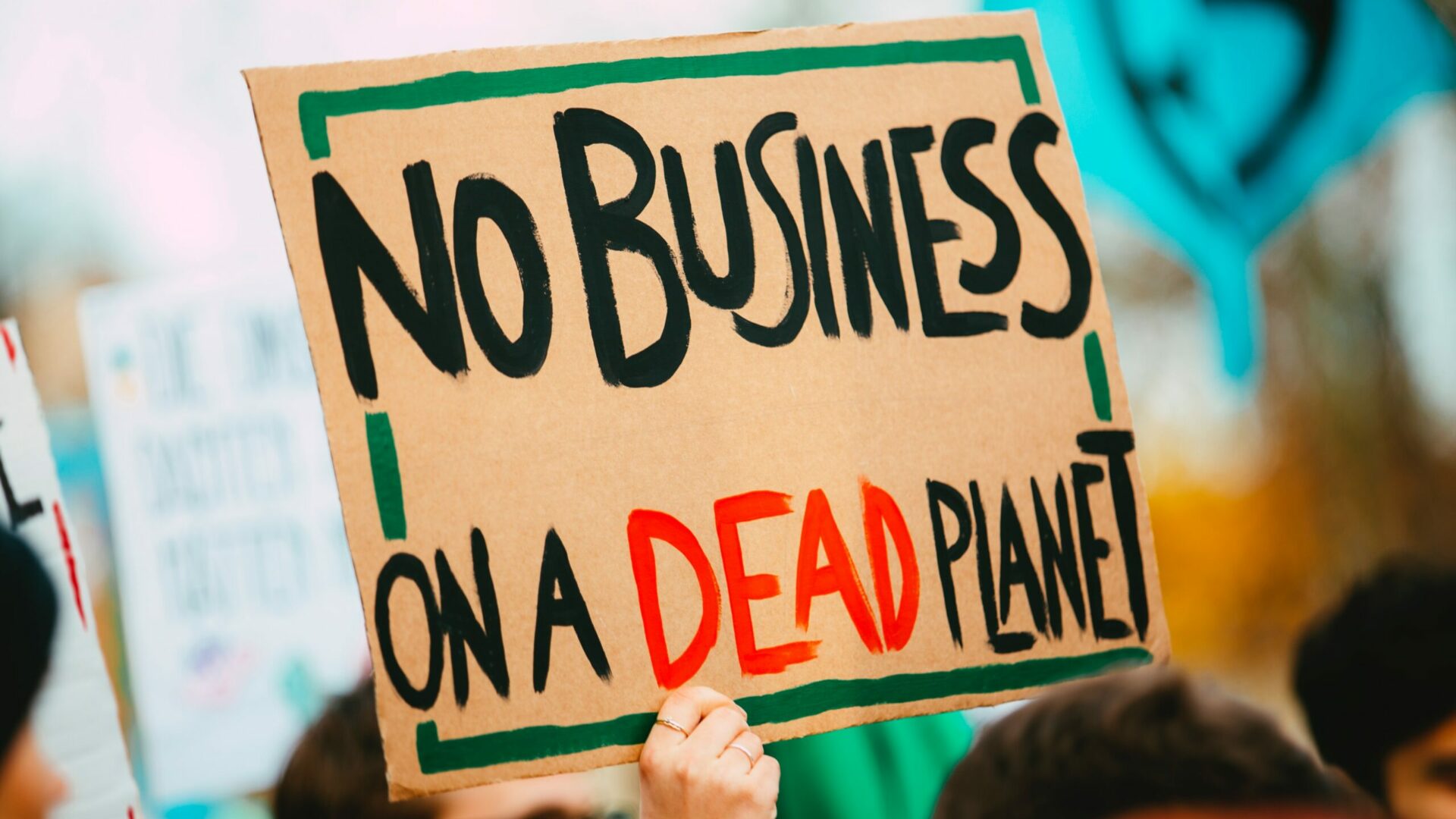Why greenwashing won't wash
Although we see a growing number of companies bringing more focus onto people and planet alongside their profit margins, greenwashing is still rife. Consumers are becoming better equipped to identify fact from fiction so now is the time for businesses to put their money where their mouth is.
COP26 is finally here and the topic of climate change, now more than ever, is at the centre of the agenda for governments, businesses and the public. Whilst governing bodies across the world unite in Scotland to determine how they will turn ideas into action, the same responsibility is now demanded of businesses and brands.
Conversation about climate change has continued to gain traction this year and it will remain for the foreseeable. And whilst conversations helpfully trickle into the more unlikely facets of life, there’s been a noticeable rebirth of the term ‘greenwashing’ on our Instagram feeds, LinkedIn hashtags and placards at protests on the news. But what’s the difference this time?
greenwashing /ˈɡriːnˌwɒʃ/
definition: behaviour or activities that make people believe that a company is doing more to protect the environment than it really is

It’s certainly not easy being green
Unlike times gone by, organisations can no longer get away with a catchy copyline positioning a company as ‘eco-friendly’, ‘enviro-conscious’ or ‘green’ in a well-designed, forest-green typeface. Whilst coming up with planet-positive ideas help companies to stand out in today’s marketplace, it’s the honesty and measurable action behind the message that consumers look for and must be prioritised above all else.
We sat in our morning meetings this week discussing the impact of COP26. We discussed the popularity of the recent TV show ‘Joe Lycett vs The Oil Giant’ on Channel 4. The programme looked into the core challenge behind corporate greenwashing with oil giant Shell. Shell have shared their new initiatives to transition into sustainable alternatives through well-shot vast landscapes and testimonials from their CEO on how they’re ‘Powering Progress’. Sadly the reality does not match the message as they continue to invest in new oil sources and display no urgent plan to end fossil fuel usage. The good news? Consumers are not fooled. To have a national broadcaster invest in a show that would be seen as ‘too controversial’ three years ago reflects the change of course as consumers demand transparency and tangible action.

Global research conducted by the Economist Intelligence Unit and commissioned by WWF, showed a 71% rise in popularity of online searches for sustainable goods over the past five years, with continuing growth during the COVID19 pandemic.
WWF.org

The truth is people simply seek the truth in what they watch, read and buy
There is no paper large enough to cover the cracks, so if there’s dishonesty behind your message it will inevitably come to light.
Companies shouldn’t be afraid to share what they are and aren’t doing, they should embrace the imperfections that inevitably come with growth and change. And starting the journey by being honest, matters. We make time to recognise our positive impact and the areas we need to do better in equal measure. And although we have B Corp accreditation, companies shouldn’t see operating ethically as a choice – it’s a mandate. Global research conducted by the Economist Intelligence Unit and commissioned by WWF, showed a 71% rise in popularity of online searches for sustainable goods over the past five years, with continuing growth during the COVID19 pandemic. Corporate responsibility is no longer a PR tool but a key driver to business operations and P&L.
We recommend that if clients want to be impactful, they go back to the why. Who impacts from your product or service and why does it matter? Rather than trying to solve all the world’s problems, start from within and explore the potential specialities you have in solving a solution for a local community, the country or the world.
The main takeaway here is every one of us can bring about positive change if we re-examine the skills we bring to the table and define why we want to make a difference.

